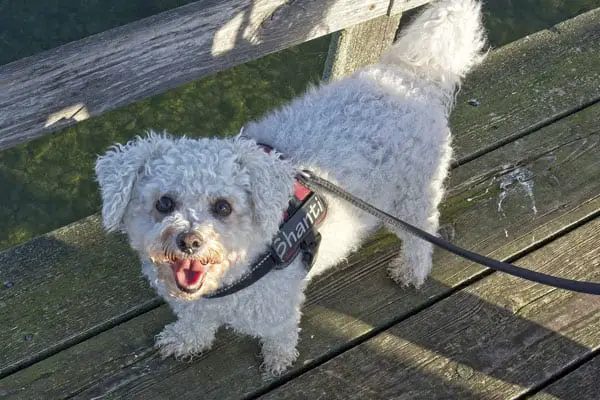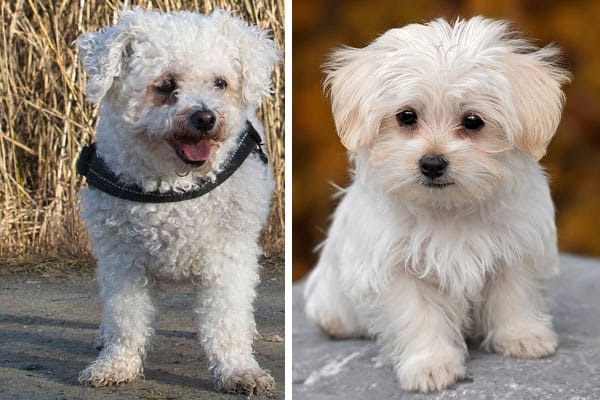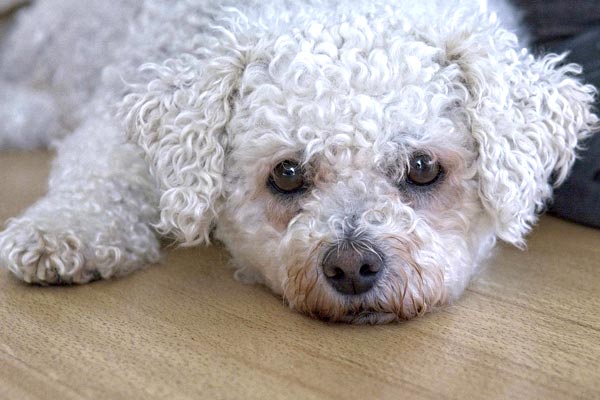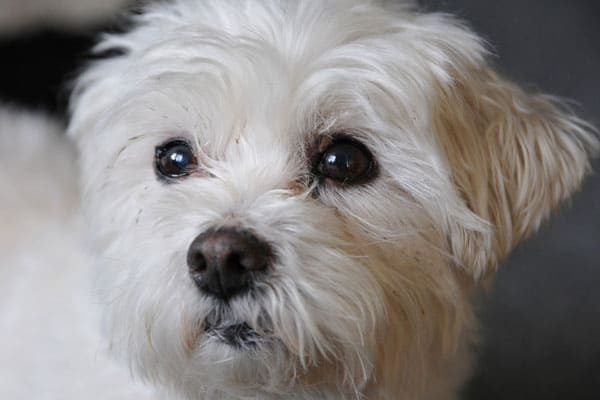Are Bichon Frise Good With Kids: Yes, No and Maybe – And Here Is Why
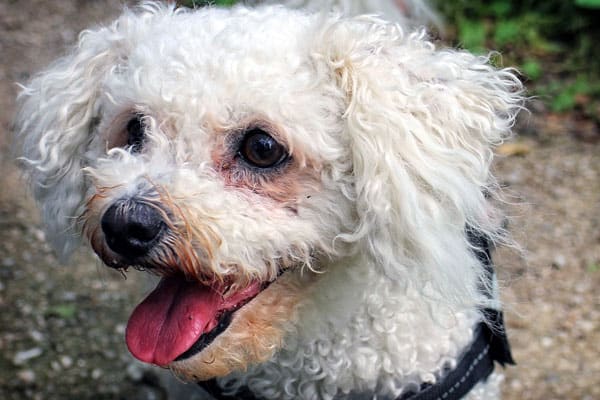
The Bichon Frise looks enough like a teddy bear comes to life that most people automatically think this is a great dog breed for families with young kids.
This is not a wrong assumption. However, many aspiring Bichon owners overlook that you need to take an active role in teaching your kids how to handle and play with a small dog breed like the Bichon.
This means there are no guarantees that your Bichon Frise will be good with your kids. Rather, you must ensure your kids are old enough to remember to handle your dog carefully and teach them to do so.
In this article, learn much more about giving your kids and your Bichon Frise the best chance of becoming the best of friends.
Are Bichon Frise Good With Kids?
The answer to the question of whether Bichon Frise dogs are good with kids is not black or white. Rather, the answer to this question depends in large part on you!
Bichon Frise dogs, as a breed, are known to be friendly, people-loving dogs. However, they are also very small dogs that cannot tolerate rough play or handling.
If your kids are taught how to play gently with your Bichon Frise, you will likely find your Bichon is a wonderful companion canine to your kids. However, if your kids handle your Bichon roughly or tease and roughhouse with your dog, they may get nipped or bitten, and your Bichon may learn to fear kids and behave aggressively.
Learn About the History and Personality of the Bichon Frise Dog
In this short YouTube overview of the Bichon Frise dog breed, learn how it got its start.
Also, find out about the personality and temperament of the Bichon Frise, including the likelihood that this dog will get along well with kids and other family pets.
4 Main Reasons Why the Bichon Frise May Be a Good Family Dog for You
Family Education points out that the Bichon Frise has three major traits recommended for families with kids.
Bichon Frise dogs only have one job to do
First, this dog has been bred down through the centuries to be a people-focused dog breed and a lap dog.
In other words, the Bichon Frise never had a “job” to do, such as hunting, herding, guarding, or protecting. Their main job has always been to be a companion to their people.
Bichon Frise dogs are said to be “hypo-allergenic.”
As the esteemed Mayo Clinic explains, there is no truly hypoallergenic pet (dog or otherwise).
This is because the actual protein that triggers pet-related allergy symptoms is present on a dog’s skin, saliva, and urine. The protein then transfers to the fur when a dog licks, grooms, or urinates.
The allergic reaction then arises when the person with the allergy comes into contact with the protein by cleaning up dead, shed hair.
But because of the way the Bichon Frise dog sheds, these dogs can be a better choice if anyone in your family suffers from a pet allergy.
The reason is that Bichon Frise dogs shed so that the dead hair gets trapped in the dog’s surrounding fur rather than falling to the floor.
So there is a lower likelihood of getting covered in shed hair with protein allergens.
Bichon Frise dogs are adaptable and outgoing.
The third major pro that Bichon dogs have to recommend for families with kids is that they tend to adapt readily to a more hectic daily life where no two days seem quite alike.
Dogs and animals generally prefer to stick to a daily routine. Still, the Bichon Frise has a more adaptable nature if that daily routine changes for any reason as so often happens when there are kids in the household.
Bichon Frise dogs will live happily indoors in smaller spaces
If you live in an apartment or any place with little or no outside area, this will not bother a Bichon Frise.
They enjoy daily walks but can do very well with indoor playtime.
4 Main Reasons Why the Bichon Frise May Not Be a Good Family Dog for You
However, before you start scouring the internet to find your family a Bichon Frise puppy or rescue dog, it is important to recognize that there are also some drawbacks to bringing a Bichon into your kids’ lives.
Bichon Frise dogs are high-maintenance dogs.
The Bichon Frise coat makes so many people fall in love with these dogs long before they know anything about the breed itself.
All that fluffy white fur with those cute button eyes make these dogs look like snuggly, huggable treasures – which they are.
But as you just learned in the previous section, how a Bichon Frise sheds out its dead hair means that the coat will need a lot of brushing to avoid developing painful tangles and mats.
Unless you have the time and interest in learning to trim your Bichon’s coat yourself, you will need to make time and invest the money into having your dog professionally groomed regularly.
This, plus the Bichon Frise people-centric personality, explains why many breeders claim these dogs are more high-maintenance than any other breed.
Bichon Frise dogs are delicate and need gentle handling
The Bichon Frise may be as social as possible, but they are still a very little dog breed.
As the American Kennel Club (AKC) explains, the typical Bichon Frise weighs between 12 and 18 pounds in adulthood and will stand less than 11.5 inches tall.
On the surface, pairing a little dog with little kids might seem like a win-win. But little kids that are too young to learn and recall how to play gently with a little dog may end up on the receiving end of a nip or even a bite.
If your kids are too young to understand how important gentle handling and play are to a tiny dog like the Bichon Frise, this may not be the right time to add a Bichon Frise to your family.
Bichon Frise dogs are slow to learn potty training
While all adults are busy, adults with kids tend to be even busier. This means it may not sound like any fun at all to have to potty-train a Bichon Frise puppy while you are potty-training your kids.
Like many small dog breeds, Bichon Frise takes longer to house train. This is because small dog breeds have small bladders and colons and often cannot “hold it” as long.
As WebMD for Pets explains, you can take some extra steps to reduce the likelihood that your Bichon will potty inappropriately inside your house.
But even so, you will likely be letting your dog out more, doing more potty training and reinforcement, and dealing with more accidents for longer than you would if you chose an adult dog or a larger dog breed.
If this doesn’t sound like something you have any extra room in your schedule for, then a Bichon Frise may not be the best dog breed choice for you.
Bichon Frise dogs hate being left alone – ever.
The Bichon is known to suffer separation anxiety if left alone for long periods. However, this breed doesn’t tolerate being left alone for short periods.
Busy parents may be unable to cope with a dog that insists on following them everywhere, sitting on their laps, and jumping on their faces to wake them up, especially after a sleepless night with the kids.
Socializing and Training the Bichon Frise With Your Kids
Aside from the three major pros and cons associated with the Bichon, you can control only one element: training and socialization, as the Bichon Frise Club of America highlights.
Here, it boils down to how well you can train and socialize your kids to handle your Bichon Frise dog gently and appropriately.
Bichon Frise is a lively, athletic dog, as VetStreet explains. Older kids often adore teaching these highly trainable dogs new tricks they can show off to their friends.
But younger kids who are not yet mature enough to pitch in with training and caring for a Bichon Frise in gentle, positive ways may encounter a very different nippy, aggressive, or fearful dog.
Now you have the information to decide if a Bichon Frise is right for you.
